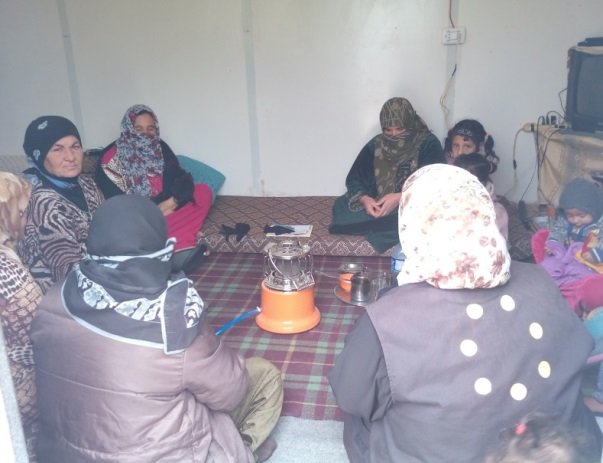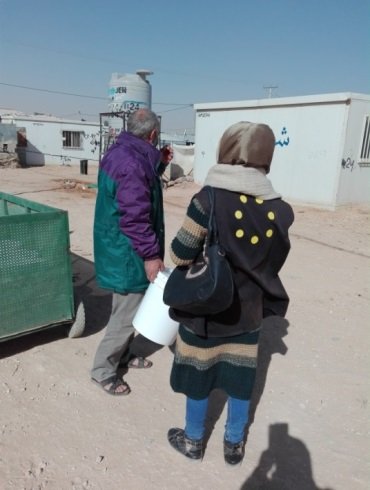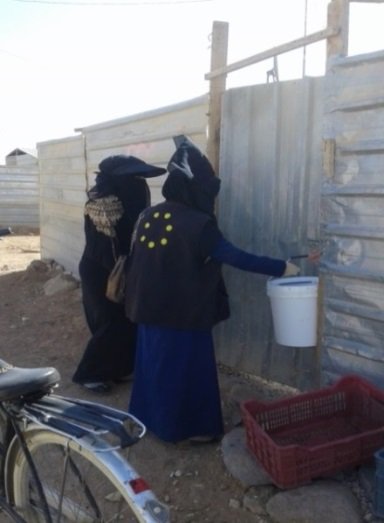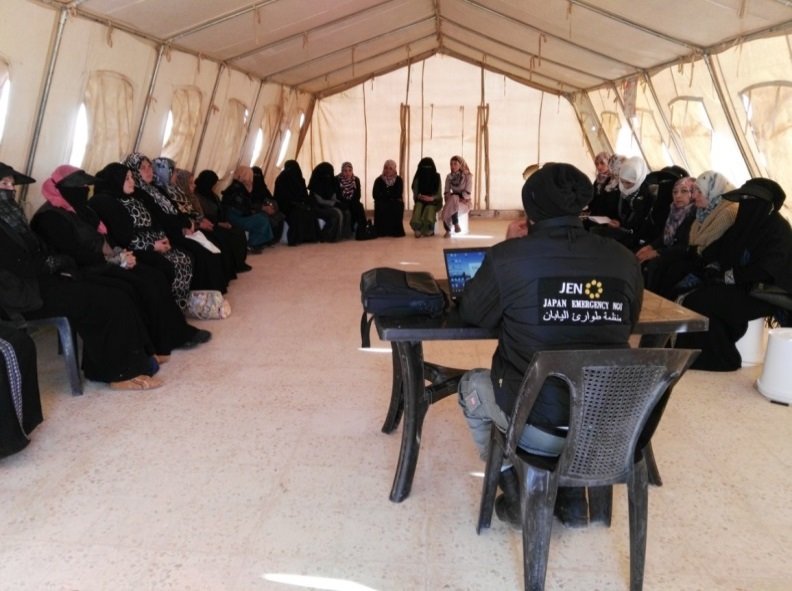By Miyako Hamasaka | PR Manager
In this report, one of JEN staff reports about a recycling project in the Za’atari Refugee Camp.
I am in charge of the recycling project in the Za’atari Refugee Camp.
Recycling has various advantages and we anticipate the following results from our efforts. Especially, the creation of new revenue opportunities for both male and, female refugees over a broad age ranges.
This project was launched on a trial basis in one of the 12 districts in the camp by an international NGO in the summer of 2015. The initiative was then introduced to all districts by November 2016. JEN is responsible for the recycling project in Districts 3, 4 and 5 in cooperation with the NGO.
The purpose of this project is to collect the recyclable waste generated in everyday life, such as glass, metals, textile and cardboard boxes, in order to reduce waste. This recyclable waste collected from each household is sent to a recycle centre located away from the residential area in the camp where it is separated according to material.
In the districts in which JEN is active, a total of 24 Syrian women and 18 Syrian men work as guidance staff and recyclable waste collection staff. They have been trained in the details of this recycling project and understand how to communicate with and get a message across to refugees. This is because separation of waste is unfamiliar to Syrians, we firstly explained them the importance of the project and what kind of waste is to be collected.
After the training, the guidance staff and also the collection staff asked householders to collect recyclable waste. The householders who understand the significance of this project due to the guidance staff’s explanation help to recycle waste. We have distributed a rubbish bin to every house to make separation easier. We also monitor the progress of each team and carry out co-ordination between the teams' members.
During the waste collecting, sometimes some householders do not participate into our system of the waste collecting. When it was occurred, I would offer advice that two of the teams, both the guidance and collecting staff, need to co-ordinate a communication each other. There were only a few cases, I would visit the householders on behalf of the teams. Therefore, their communication skills have been fostered by solving this kind of situations.
I have been involved in similar activities with humanitarian support organisations including JEN over the last five years, through which I have learned how to communicate with and support refugees who are in a difficult situation. The feeling that I am helping refugees makes me feel proud and gives me inspiration to improve myskills. I would like to further enhance my management skills.
Project reports on GlobalGiving are posted directly to globalgiving.org by Project Leaders as they are completed, generally every 3-4 months. To protect the integrity of these documents, GlobalGiving does not alter them; therefore you may find some language or formatting issues.
If you donate to this project or have donated to this project, you can receive an email when this project posts a report. You can also subscribe for reports without donating.



